
Okay, let's be honest, managing all our digital files can sometimes feel like trying to find a single star in a massive galaxy. Documents pile up, folders multiply, and just locating that one important thing you need right now can eat up way too much time. Wouldn't it be amazing if your cloud storage could just... sort of... know what you're looking for?
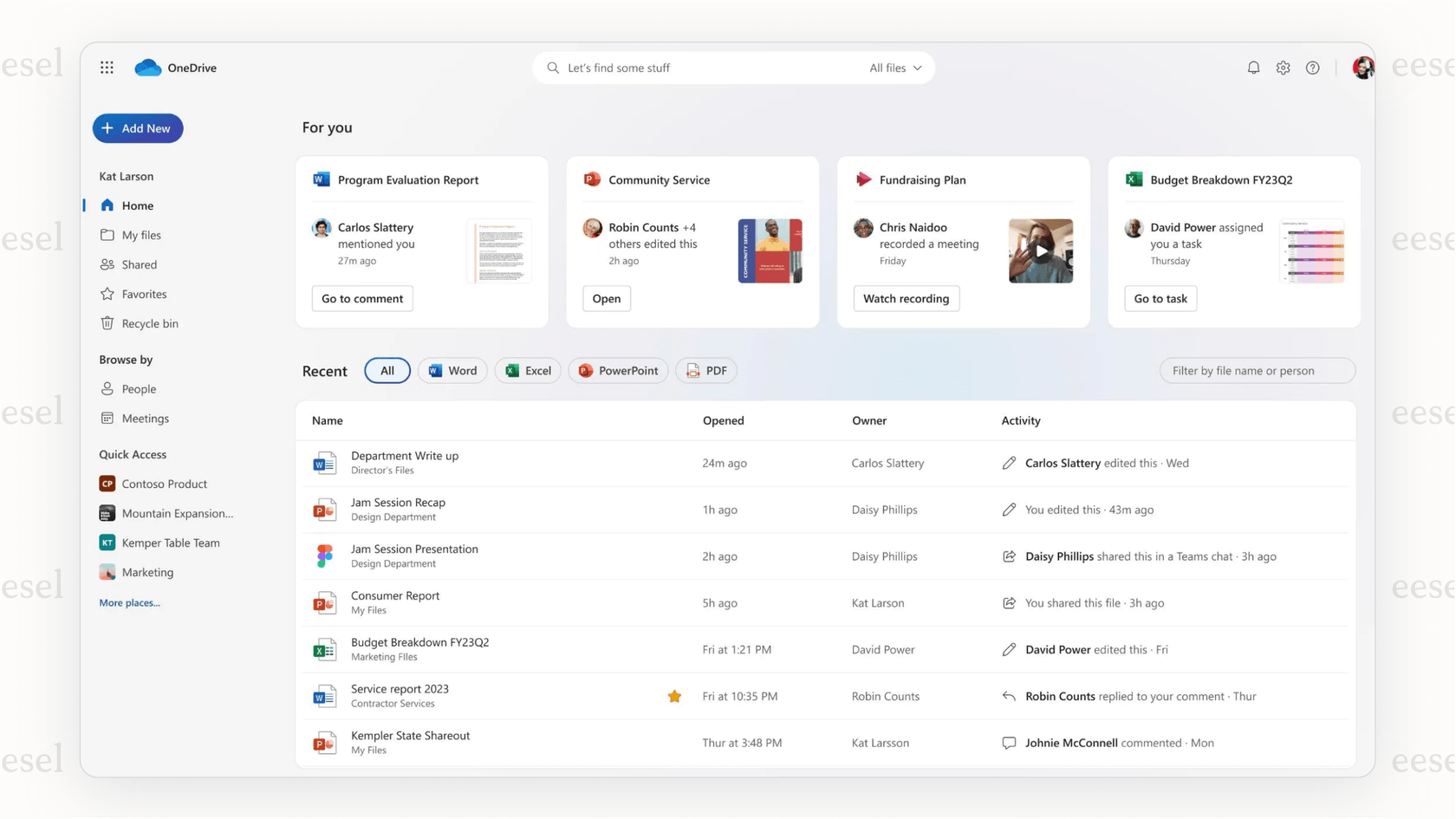
Well, that's exactly where artificial intelligence (AI) is starting to step in. It's beginning to transform tools like Microsoft OneDrive from just a place to dump files into something that might actually help you work smarter. Microsoft has been adding AI features, mostly through its Copilot tools, to change how you interact with everything you've got saved in the cloud.
In this post, we're going to take a good look at the AI stuff Microsoft has built into OneDrive. We'll focus on how it tries to make finding files easier, helps with organizing and tagging things, and even offers up smart suggestions. These features are pretty cool for general file management within the Microsoft world. But, it's also worth thinking about whether they really hit the mark for businesses with more specific needs, like automating customer support tasks, where other AI tools might be a better fit.
What is Microsoft OneDrive AI?
Okay, first things first. Microsoft OneDrive is basically Microsoft's cloud storage service. It's a big part of their Microsoft 365 package. It lets you save, sync, and share your files across different devices and with other people. Think of it like your personal or team's digital filing cabinet, but instead of being in the office, it's up in the cloud.
Now, when we talk about Onedrive AI, we mean the artificial intelligence features, largely powered by Microsoft Copilot, that they're adding to OneDrive. The big idea here is to go beyond just storing files. It's about using AI to understand what's inside your files, make them way simpler to find, and maybe even help you manage them before you even ask. It's like adding a smart layer on top of all your saved stuff. Since it's part of the larger Microsoft family, these features often connect with things like SharePoint, which, by the way, is another place eesel AI can connect to for finding organizational knowledge.
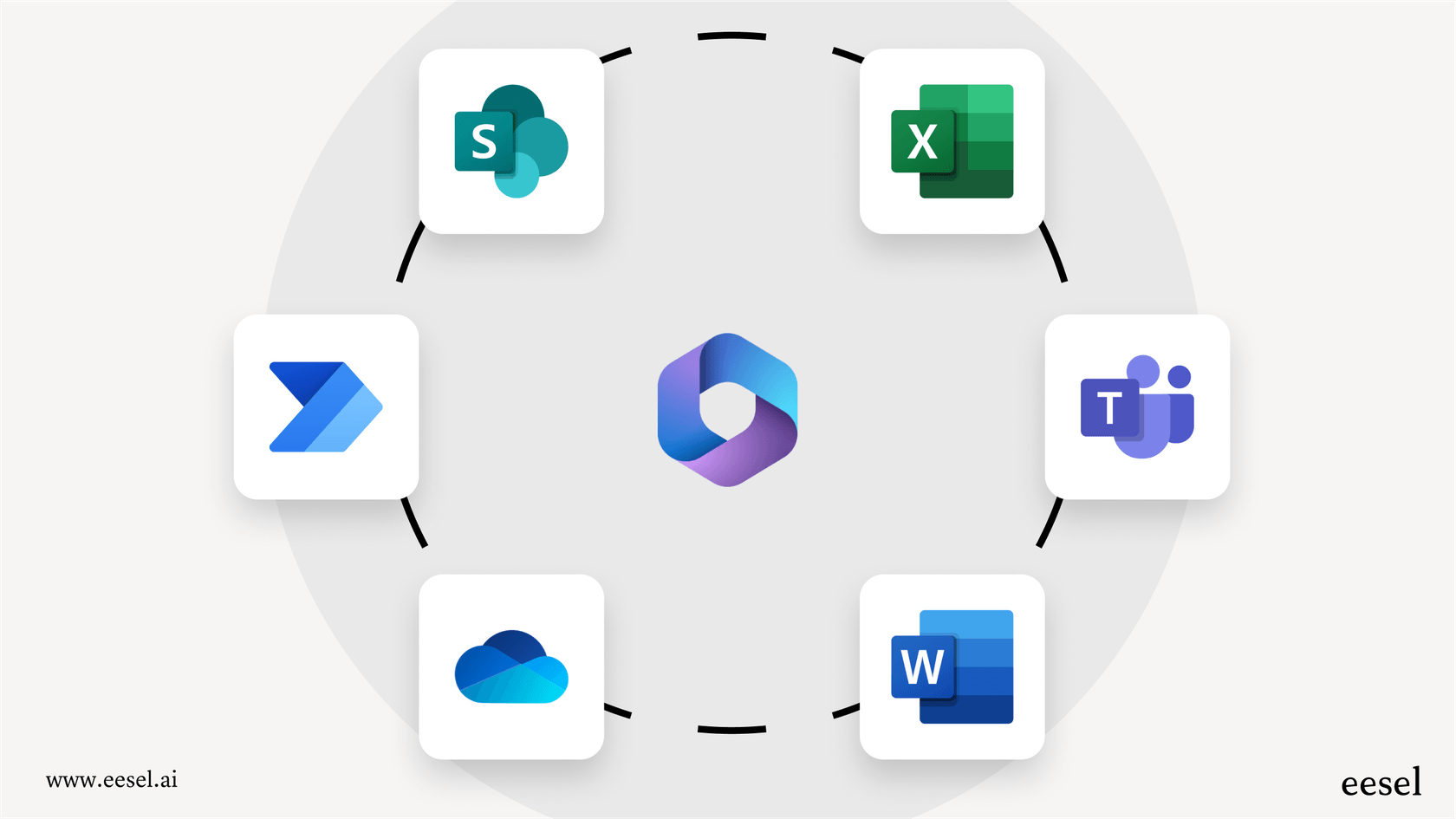
OneDrive AI: Features and specs
So, what exactly does Microsoft's AI bring to the party in OneDrive? Let's break down the specific features and how you actually get access to them.
Key features
Microsoft is rolling out several AI-powered abilities to make using OneDrive a better experience. These features are designed to help you manage and work with your documents in a smarter, more efficient way.
Here are some of the main ones:
- Better File Search: This isn't just matching keywords anymore. The AI tries to understand what you mean when you search, using everyday language. It can even look inside your documents to find specific bits of information.
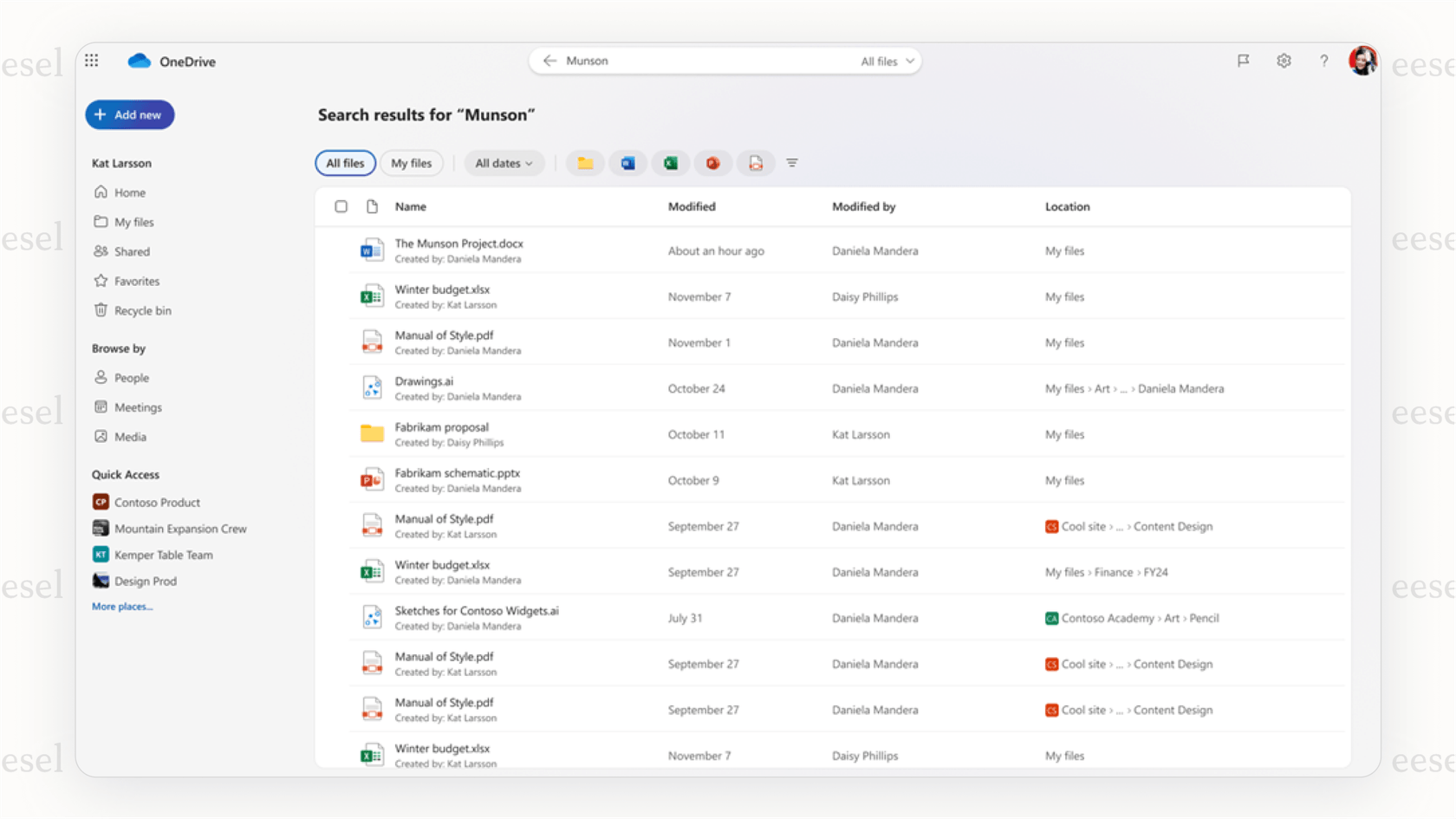
- Automated File Tagging and Organization Help: The AI looks at what's in your files and can suggest or even automatically add relevant tags. This should make files easier to discover later and might help keep things tidier without you having to do all the manual work.

- Smart File Suggestions: Based on what you've been working on, your calendar, or maybe even your upcoming meetings, the AI can try to guess which files you might need and show them to you proactively.
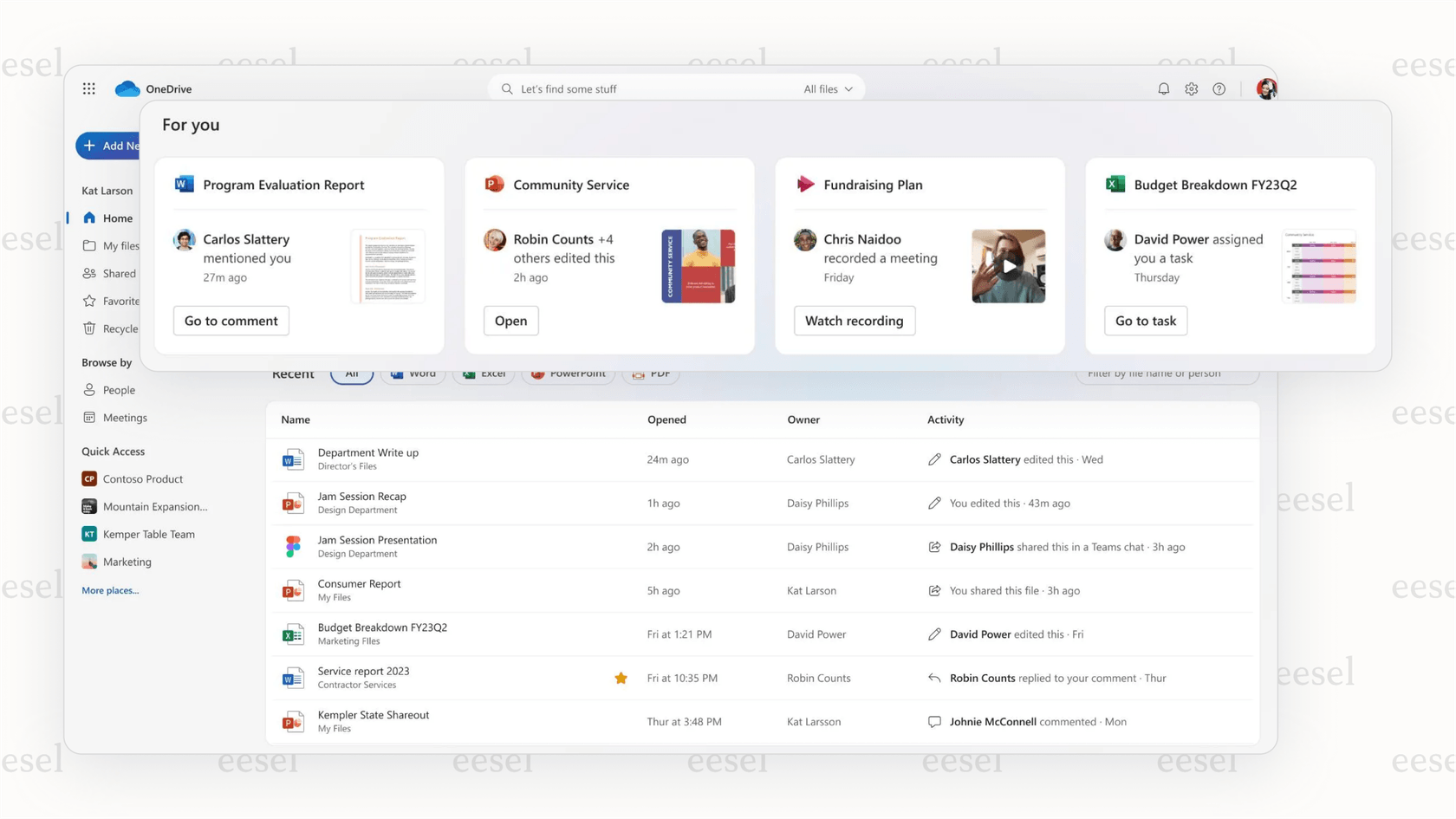
- File Summaries: Need to know what a document is about quickly? You can get a fast overview without having to open it, which saves time when you're just checking if a file is the right one.

- File Comparison: The AI can point out the differences between different versions of the same document or even compare two separate documents for you.
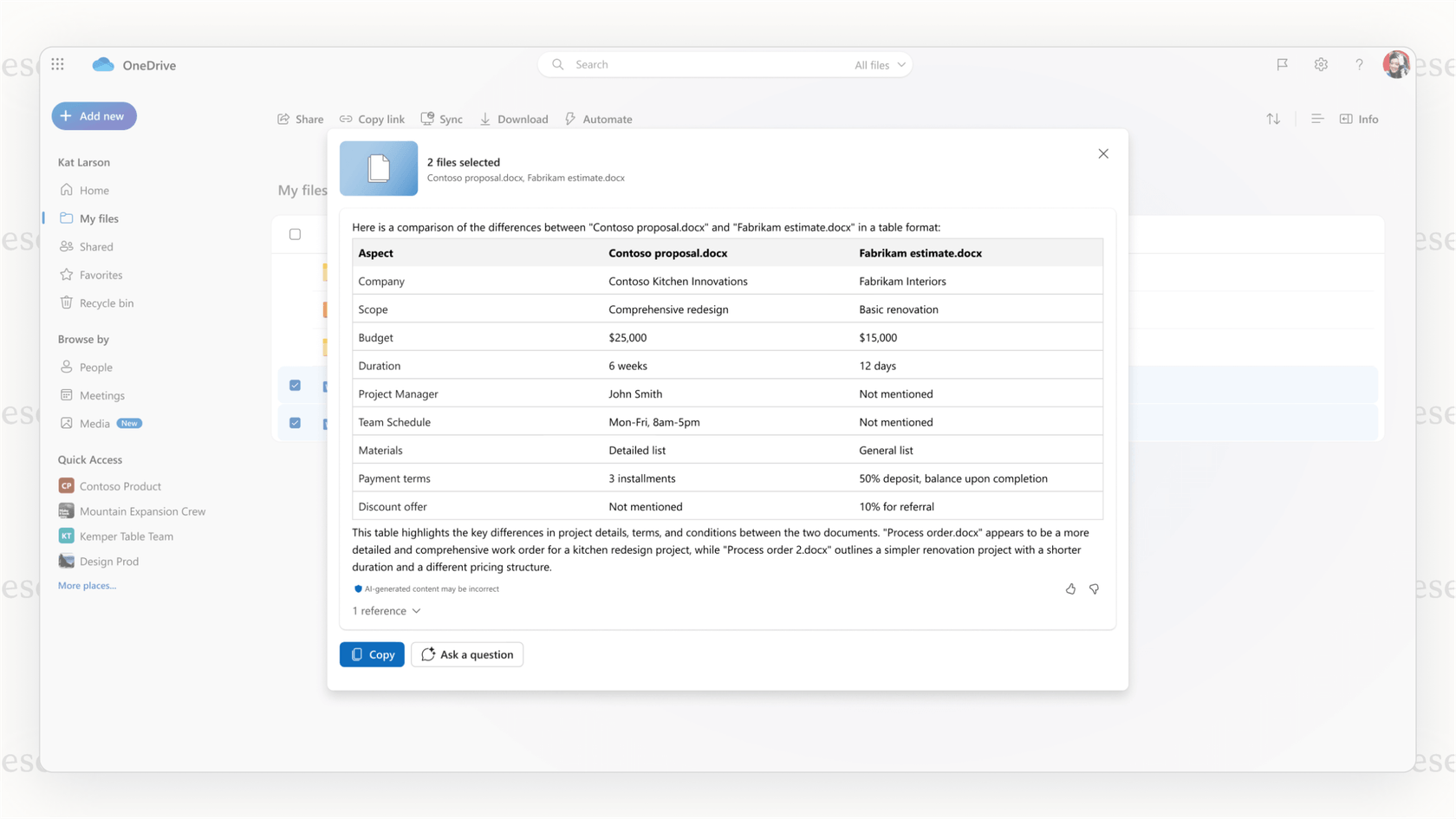
- Copilot Agents: If you're a commercial user, Microsoft lets you build your own custom AI helpers. You can train these agents on your company's data, including files in OneDrive. These agents can then potentially do specific tasks on their own.

These AI features are designed to work with lots of different file types you commonly use in Microsoft 365, like Word docs, PDFs, PowerPoints, Excel sheets, and more.
Pricing and access
Alright, here's where it gets a little less straightforward. While some really basic AI might be included in your standard Microsoft 365 plans, the more advanced and powerful stuff, especially anything labeled "Copilot" or "Copilot Agents," requires an extra license.
That extra license is called the Microsoft Copilot for Microsoft 365 license.
Right now, this license costs $30 per user per month. And yes, that's on top of what you're already paying for your Microsoft 365 subscription.
Our Take: Adding $30 per user per month for these advanced AI features can really add up, especially for bigger teams. Companies might find this price tag a bit high if what they really need AI for is very specific, high-volume tasks that aren't just about managing documents in M365, like automating customer support conversations. In those cases, other AI solutions might have different pricing models (like paying per interaction) that could be more predictable and maybe even cheaper.
Ideal user profile
So, who's going to get the most out of OneDrive AI? If your organization already uses Microsoft 365 for pretty much everything, you're probably the best fit. It's especially helpful for people and teams who deal with tons of documents all the time and whose main work happens within the Microsoft suite. Teams focused on finding information buried in internal documents within M365 will also likely find these features useful.
Reviewing OneDrive AI capabilities
Let's dig a bit deeper into what the AI in OneDrive can actually do and think about how well it works and what impact it might have on your day-to-day tasks.
Enhanced file search
One of the first things you'll probably notice with Onedrive AI is how it changes file search. Instead of just looking for exact keywords, the AI tries to figure out what you mean with your search query and understand the content inside your files. This means you can search using more natural language. You could potentially type something like "Find the report from last year about how marketing did in the second quarter" instead of having to remember the exact file name or where you saved it.
The biggest win here is speed. If you have a huge, messy collection of files, finding the right document, or even just a specific detail inside a long document, can take ages. AI is supposed to help you cut through all that clutter much faster.
The biggest win here is speed. If you have a huge, messy collection of files, finding the right document, or even just a specific detail inside a long document, can take ages. AI is supposed to help you cut through all that clutter much faster.
Pros:
-
Can save you a lot of time searching, especially if you have tons of files.
-
Lets you search more naturally using everyday questions.
Cons:
-
How well it works really depends on how good the AI is at understanding what you're asking and how well-organized or clear your documents are.
-
You need that extra, paid Copilot license to get the best features.
Our Take: This is a pretty big step up if you spend a lot of your day hunting for files. The time you save could potentially make the cost worth it if you're a heavy user, but remember, it's not a free upgrade.
Automated tagging and organization
Let's face it, manually adding tags and keeping files neatly organized is one of those chores that often gets pushed to the side. This usually leads to a digital mess down the road. The AI in OneDrive tries to lend a hand here by analyzing what's in your files and suggesting or automatically applying helpful tags. The idea is that if files are tagged better, they're easier to find later, and it helps keep things somewhat consistent without you having to do all the manual tagging yourself.
- Pros:
Can cut down on the manual work of managing files.
-
Might help keep file categories more consistent.
-
Could make finding files by tag easier later on.
Cons:
-
The AI might not always get the content right, so you'll probably need to keep an eye on it.
-
It's not super clear how much full automation (like automatically moving files) is possible based on the AI's analysis or how you can customize it for your specific setup.
-
Details on how this works automatically seem less defined compared to searching or summarizing.
Our Take: This feature has good potential for reducing some of that tedious admin work. But for it to be truly useful without causing new headaches, it's really important that the AI is accurate with its tagging.
Intelligent suggestions and insights
The AI in OneDrive isn't just waiting for you to ask for something; it also tries to guess what you might need next. This shows up as intelligent file suggestions. The AI might pop up with documents it thinks are relevant based on what you're currently doing, meetings you have coming up (if it's linked to your calendar), or people you've been working with recently.
Beyond just suggesting files, features like file summaries give you a quick way to get the gist of a document without opening it, and file comparison helps you quickly spot what's changed between different versions.
- Pros:
Could potentially save you time by bringing relevant files to your attention before you even look for them.
- Offers fast ways to understand what's in a document without reading the whole thing.
Cons:
-
The suggestions might not always be spot on or useful for what you're doing right now.
-
It relies on the AI doing a good job of learning how you work and understanding your context.
Our Take: This adds a layer of helpfulness to your storage. It makes OneDrive more than just a place to store stuff and can genuinely make your workflow smoother if the suggestions are accurate and show up at the right time.
Value for money
Let's talk about the price again. To get the advanced Onedrive AI features, you need that Microsoft Copilot for Microsoft 365 license, which costs $30 per user per month. That's an extra charge on top of your current M365 plan.
So, is the benefit of better search, some help with tagging, and smart suggestions by themselves worth that $30 per user per month for everyone in your company? For some people who spend all day working deeply with documents inside the M365 world, and who can see how much time these features save them, maybe it is. But for others, especially if they just use OneDrive for basic storage or need AI for things outside of just managing files (like automating customer questions), it might feel pretty expensive just for the AI features you get within OneDrive.
Comparing this to AI tools that charge differently, like based on how many times you use them (pay-per-interaction), really highlights that the value here is very specific. If your main goal is to automate lots of repetitive tasks, paying per interaction might be more predictable and cost less than paying a high fee for every single user.
Our Take: OneDrive AI offers the most value for people whose main job involves working extensively with documents within the Microsoft 365 setup and who can clearly see how much more productive these specific features make them. For companies or individuals who need AI for broader tasks or use lots of different software, the cost might be hard to justify based only on the OneDrive AI features.
Scope and actionability
It's good to understand what OneDrive AI is really designed to do. While it's getting smarter about the content and management of your files, its main focus stays within the world of documents. It helps you find, understand, and maybe organize your files better.
This is different from AI that's built to actually do things based on what's in a document or what a user asks. For example, an AI assistant trained on your company's info might not just find the right policy document, but also use that info to update a customer's account using a software connection, process a refund, or start a specific process in another system.
- Pros:
Great at understanding and interacting with document content.
- Improves efficiency for tasks related to file management within M365.
Cons:
-
Limited ability to take action or perform tasks outside of file interaction.
-
Not designed for automating complex business processes involving multiple software tools.
Our Take: OneDrive AI is great at understanding files – it helps you work with your documents more effectively. But if your business needs AI to take action – to actively join in on daily tasks, solve problems by taking concrete steps, or handle complicated processes that involve several different apps – you might find its abilities limited unless you build more on top of it or use other AI tools that are designed for taking action.
Integration and flexibility
OneDrive AI, powered by Copilot, is made to fit in perfectly with the rest of the Microsoft 365 suite. This means it works smoothly with things like Teams, SharePoint, and other Microsoft apps. It creates a connected experience if you're already using those tools a lot.
But, because it's so tightly integrated into its own world, it can sometimes be tricky to easily connect these specific AI features with tools outside of Microsoft. If you use a different helpdesk system (like Zendesk or Freshdesk), a different customer relationship manager (CRM), or custom business software, using the AI insights from OneDrive directly within those other tools might need complicated custom setups or might not even be possible.
- Pros:
Seamless integration with other Microsoft 365 apps.
- Provides a unified experience within the Microsoft ecosystem.
Cons:
-
Limited flexibility for integrating AI features with non-Microsoft tools.
-
Requires custom setups or is not possible for cross-platform automation needs.
Our Take: If your company is all-in on the Microsoft 365 stack, the way it connects internally is a big plus. It makes everything feel unified. But for businesses that use a mix of different software or have specific needs to automate tasks across non-Microsoft platforms (like using AI to answer questions in Zendesk based on info in Google Docs and then doing something in Shopify), the ability to connect and act across those different systems isn't as built-in compared to some other platforms designed with broader connections in mind.
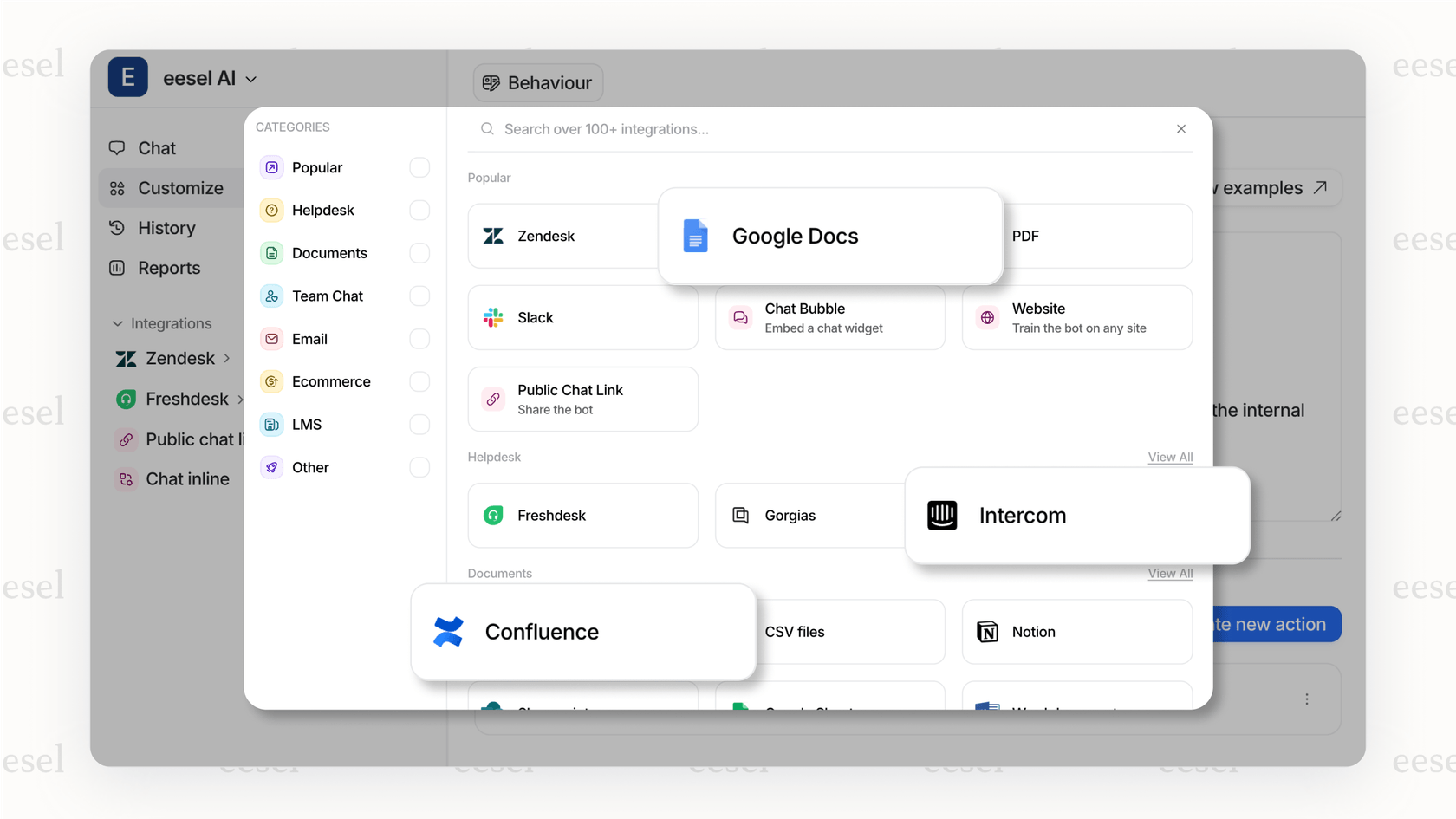
OneDrive AI vs. dedicated AI platforms
While Onedrive AI makes managing files better within the Microsoft world, other AI platforms built for specific jobs often have different strengths, especially for things like customer support or helping employees find internal information.
Different approaches to AI
OneDrive AI's main job is to use AI to help you work with and manage documents within its cloud storage space. It helps you work smarter with your files.
Tools like eesel AI, on the other hand, are often built with a different main goal: automating tasks and interactions across various business tools. While they can definitely use documents as a source of information, they're designed to let AI actually do things, answer questions, and make processes smoother, particularly in areas like customer support and giving employees quick access to information from all sorts of different internal systems.
Cost comparison
As we've talked about, getting the advanced AI features in OneDrive means buying the Microsoft Copilot for Microsoft 365 license, which is $30 per user per month. This is a set cost for each user, whether they use the AI features a lot or just a little.
Compare this to eesel AI's pricing, which is based on how many interactions the AI handles, not a fixed fee per user. For instance, their Team plan starts at $299/month for 1,000 interactions, and the Business plan is $799/month for 5,000 interactions. You don't pay extra just for having more agents or employees who might use the system occasionally.
- OneDrive AI Cost:
Requires additional $30 per user per month license (Microsoft Copilot for Microsoft 365).
- Fixed cost per user regardless of AI usage volume.
eesel AI Cost:
-
Pricing based on AI interactions ($299/month for 1,000, $799/month for 3,000, and more if you need it).
-
Cost does not increase per user or agent.
-
More predictable for high-volume, task-specific automation.
Our Take: If your company is focused on automating tasks in a cost-effective way, especially in areas like customer support where you might have lots of interactions but not necessarily tons of agents, eesel AI's model can be much more predictable and easier to scale without the high per-user cost you see with Microsoft Copilot.
Training and customization
OneDrive AI learns from the files in your OneDrive and the rest of your M365 environment. While Copilot Agents do let you customize things a bit, the level and ease of training the AI on a wide range of different sources (like old helpdesk tickets, external wikis, specific databases, or internal notes) might vary.
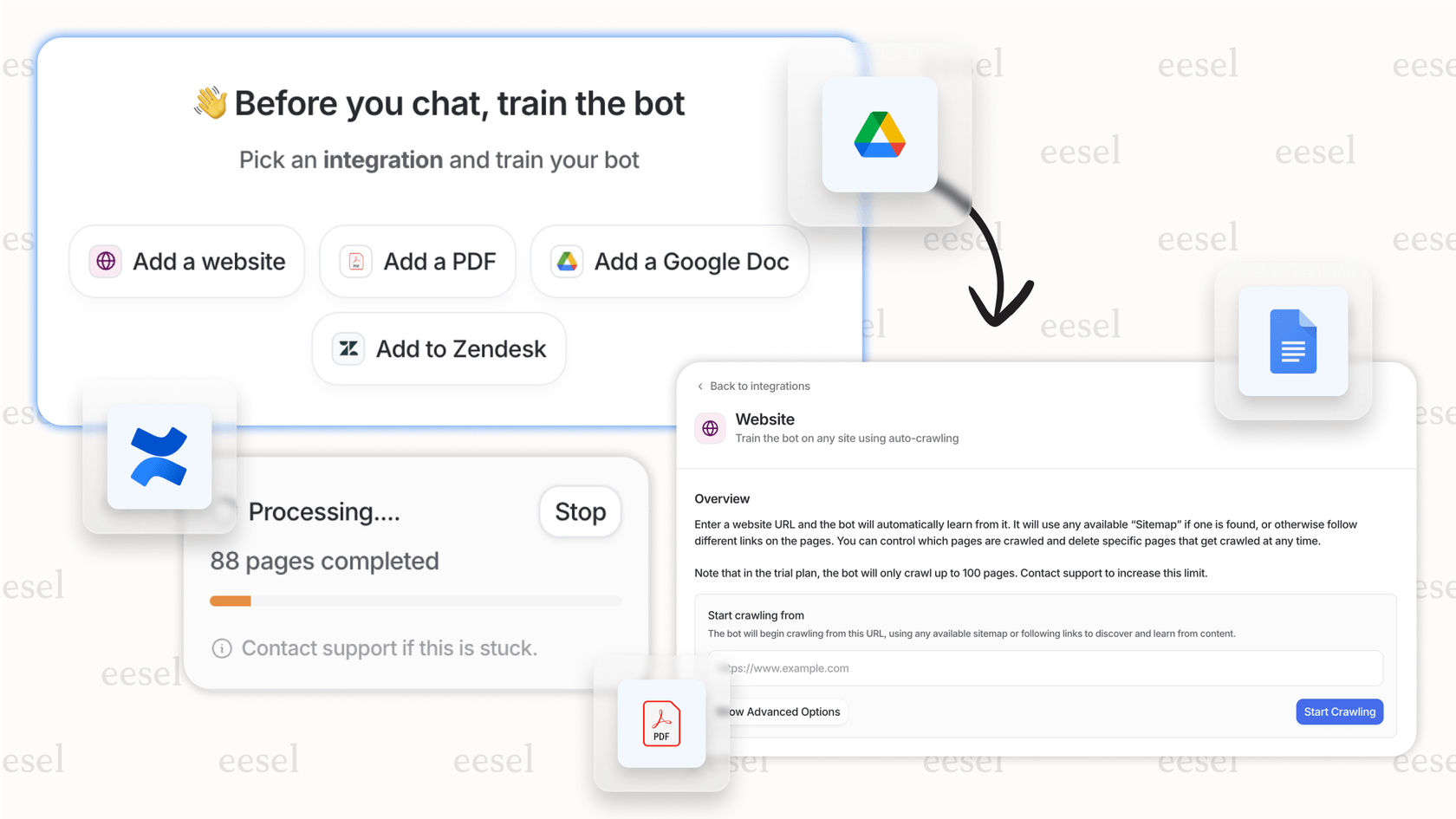
eesel AI is designed to learn from over 100 different places. This includes help centers, past support conversations, internal documents like Google Docs or Confluence pages, PDFs, and lots more. It also has features like automatically keeping your knowledge sources up to date and strong options for changing the AI's prompt, how it sounds, and how it acts. Plus, you can test out its answers before you put it to work.
- OneDrive AI Training:
Primarily learns from files within OneDrive and M365.
- Customization options may be limited depending on the Copilot feature.
eesel AI Training:
-
Designed to learn from 100+ sources (help desks, tickets, wikis, documents, etc.).
-
Automatically keeps knowledge sources updated.
-
Offers strong customization for tone, prompts, and actions.
-
Includes testing features before deployment.
Our Take: Generally speaking, eesel AI offers more flexibility and depth when it comes to teaching the AI. This lets businesses really fine-tune the AI's knowledge using their specific data and processes, including using valuable past support conversations that might be stuck inside a helpdesk system.
Workflow automation capabilities
What the AI can actually do also differs based on what it was built for. OneDrive AI focuses on tasks related to files, like summarizing, finding, and comparing documents.
eesel AI, on the other hand, is built to automate actions and processes within tools like helpdesks and collaboration apps. This includes things like automatically handling simple customer questions, smartly sorting tickets (like routing, adding tags, or setting priority), doing custom actions through software connections (like checking an order status or starting a refund), and supporting complex processes that involve multiple automated steps.
- OneDrive AI Automation:
Focuses on file-related tasks (summarizing, searching, comparing).
- Limited ability to perform actions in other software tools without additional setup.
eesel AI Automation:
-
Built to automate actions and processes across various business tools.
-
Can handle customer questions, route/tag tickets, perform custom actions via integrations.
-
Supports multi-step automated workflows.
Our Take: If you need AI to actively participate in your business processes, solve customer questions by taking action, or manage complicated support ticket flows, eesel AI's design is specifically aimed at these kinds of functional automations. It can work alongside or add to what tools like Zendesk or Freshdesk can do.
OneDrive AI vs. eesel AI: pricing comparison
| Feature | OneDrive AI (with Copilot) | eesel AI (Business Plan) |
|---|---|---|
| Usage Limit | Fixed messages (plan dependent) | 3,000 AI interactions/month |
| Bots | Limited AI agents (plan dependent) | 3 bots or more |
| Content Limit | 33MB per bot | No hard limit, auto-syncs |
| Help Desk Integration | Limited (primarily M365) | Zendesk, Freshdesk, etc. |
| Slack/MS Teams Integration | Yes (within M365) | Slack and Microsoft Teams |
| AI Actions (Triage, Tagging) | Limited (plan dependent) | Included |
| Branding Removal | Extra cost ($39/month) | Included |
| Custom Domains | Extra cost ($59/month) | Included |
| Past Ticket Training | Limited (depends on M365 data) | Yes (up to 3,000 tickets/month) |
| Real-time Updates | Manual upload/M365 sync | Auto-sync from sources |
| Base Cost | $30/user/month (on top of M365) | $799/month |
| Cost Extras | Add-ons for agents, users, branding | No extra fees |
The future of intelligent file management
Seeing AI being added to cloud storage like OneDrive is a pretty clear sign of where things are heading: digital storage is getting smarter and trying to be more helpful on its own. Microsoft putting a lot of effort into Onedrive AI is a big part of this trend, especially for companies that use Microsoft 365 a lot.
But as AI keeps getting better, the most useful tools will probably be ones that not only understand the information they hold but are also deeply connected to how you actually work and are flexible enough to link up with and take action across all sorts of different software, no matter who made it.
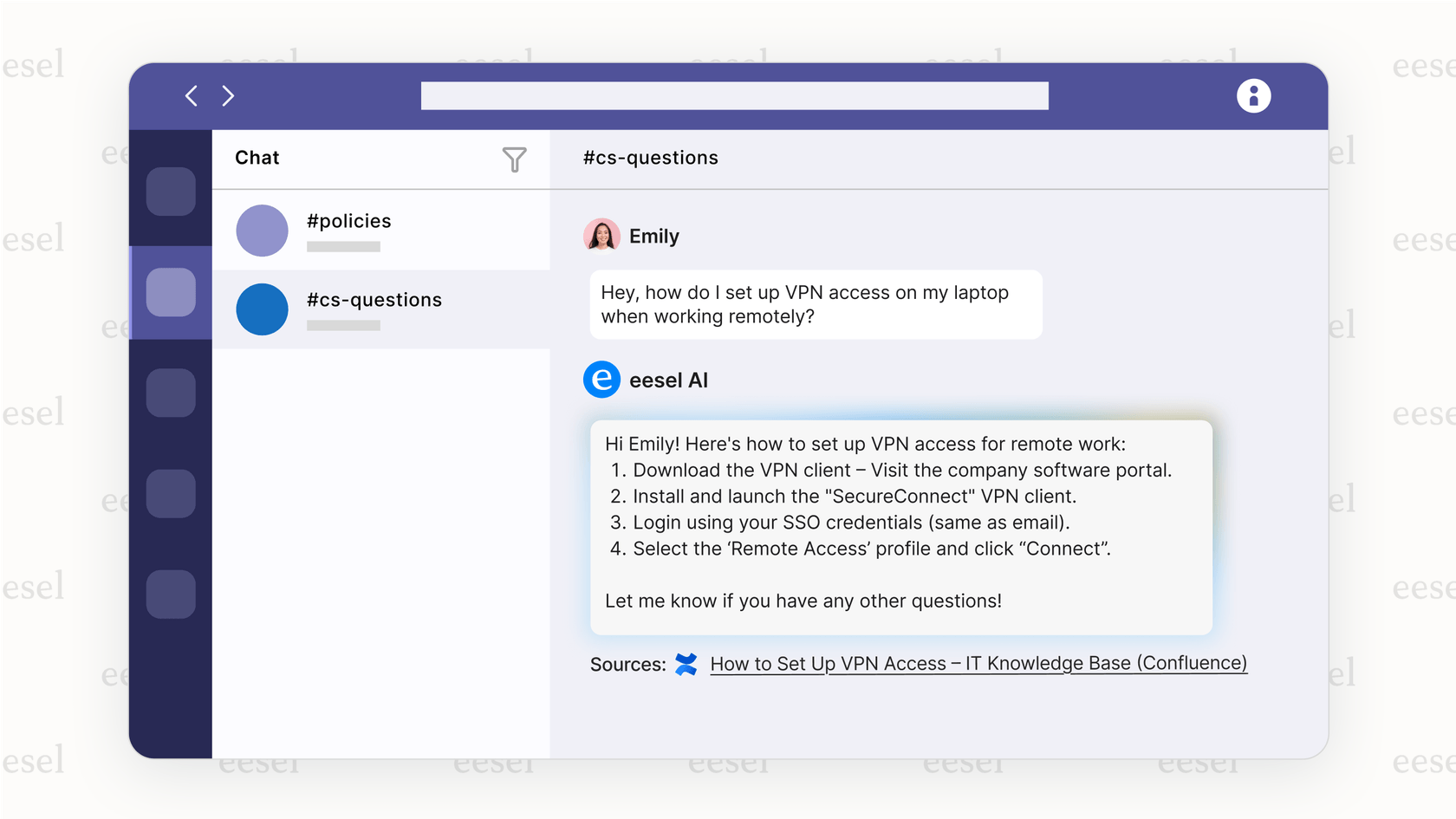
Final verdict: Is OneDrive AI right for your needs?
Microsoft's Onedrive AI definitely brings some cool improvements to managing files, especially if you're already using Microsoft 365. The better file search, the potential help with automated tagging, and the smart suggestions can genuinely make things easier for people and teams who spend a lot of time working with documents in OneDrive.
It seems like the best fit for people who are heavy users of M365 and whose main need is to interact with their files in that environment more intelligently.
However, the biggest thing to consider is the cost. That required Microsoft Copilot for Microsoft 365 license at $30 per user per month is a notable extra expense. For companies that need AI for specific tasks, like automating customer support, handling lots of tickets efficiently, or connecting AI across a bunch of different software tools, it's really important to look at other options or tools that are built specifically for those jobs.
Explore a flexible AI solution for support
If your main goal is to improve how you automate customer support, handle a high volume of tickets, or connect AI with the helpdesk and internal tools you already use without paying high fees for every single agent, you might want to check out a platform made specifically for that.
eesel AI offers powerful AI agents and assistants that can be trained on your unique company data (yes, including those past support tickets!). They have flexible pricing and lots of options for customizing workflows.
Ready to see how smarter AI could change your support process? You can book a demo or start a free trial today.
Share this post

Article by
Kenneth Pangan
Writer and marketer for over ten years, Kenneth Pangan splits his time between history, politics, and art with plenty of interruptions from his dogs demanding attention.






